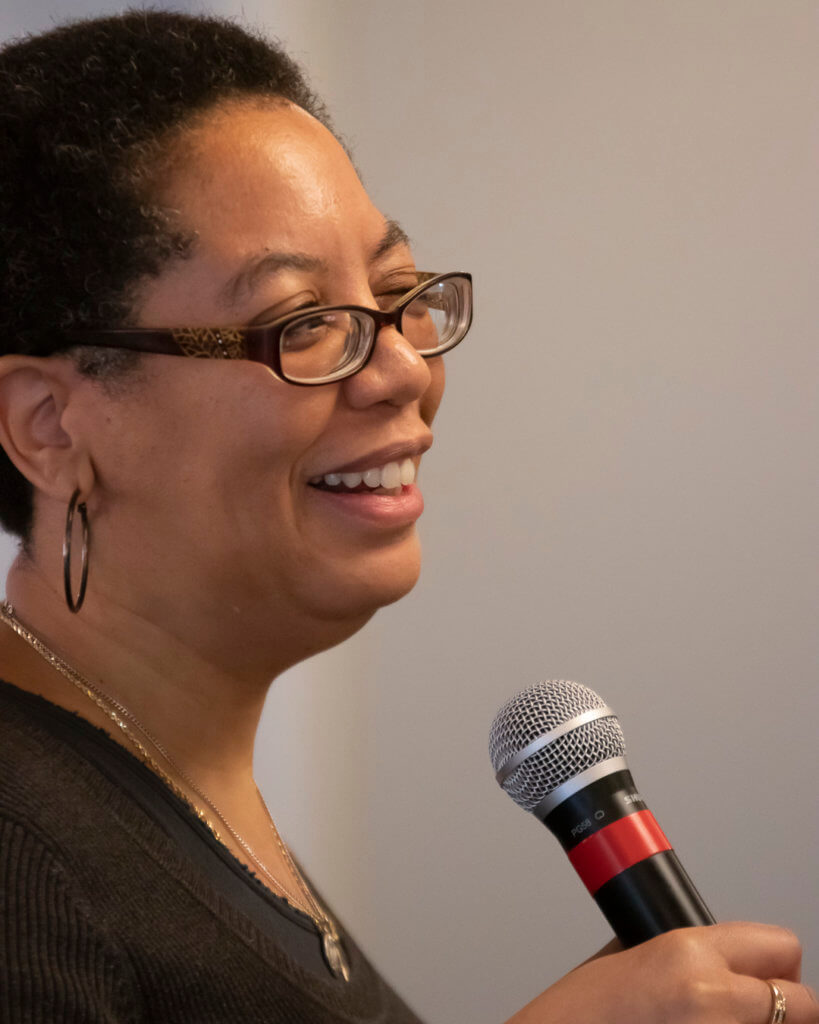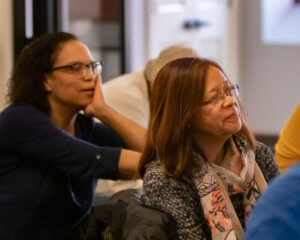Implicit Bias Training Continues Work of Dismantling Racism

In late February, more than 75 people from around the region gathered at St. Luke’s Episcopal Church in Jamestown for a workshop on implicit bias led by Dr. Ursuline Bankhead, a licensed psychologist and member of Trinity Episcopal Church in Buffalo, as part of the partnership’s efforts to combat racism and work toward racial justice in the region.
Implicit bias, as defined by the Kirwan Institute of the Ohio State University, is “a mental process that stimulates negative attitudes about people who are not members of one’s own ‘in group.’ Implicit racial bias leads to discrimination against people who are not members of one’s own racial group.”

The workshop, sponsored by the partnership’s Commission to Dismantle Racism and Discrimination, helped attendees recognize personal implicit bias and understand the difference between being passively non-racist and being anti-racist, which includes actively working against racism and other institutional discriminatory structures.
“Dr. Bankhead offered a fabulous, engaging workshop that helped us see how our personal implicit bias is both reinforced by and reinforces institutional racism in society and the church,” said the Rev. Luke Fodor, rector of St. Luke’s. “She invited everyone present to dig deeper into our hearts to decide for ourselves if we are content being merely not-racist or willing to commit to being anti-racist and speak out for inclusion.”
The workshop helped the Rev. Rebecca Harris, deacon at St. John’s Episcopal Church in Kane, realize how implicit bias and racism operate in her community, which in the 2010 census was more than ninety-eight percent white.
“I now realize that, even though I consider myself to be open and accepting, I have very little experience actually interacting or talking to people of color,” said the Rev. Rebecca Harris, deacon at St. John’s Episcopal Church in Kane, Pennsylvania. “I live in a community where we have very few folks who are other than white. This came to me forcefully recently when a black friend from high school decided when she retired that she would move back to Kane. She told me over lunch one day that she was having a very hard time and had been treated badly at a local eating and drinking place. I was stunned and didn’t even know how to talk to her about it. She ended up moving away, and I still don’t know how to deal with it.”
The workshop was offered, said Bishop Sean, as one step in the partnership’s commitment to work for racial justice. Later this spring, the partnership will continue steps toward racial justice by participating in a racial audit conducted by the Episcopal Church as part of the Becoming Beloved Community initiative.
“We are building our capacity to face honestly the history of structural racism in our church—to acknowledge, in the words of the confession, the evil we have done and the evil done on our behalf,” he said in his Lenten message. “Our journey toward justice will undoubtedly be difficult at times, but I pray that it will lead us to understand what Beloved Community might look like in our dioceses and how we as the people of God can foster reconciliation, justice, and healing.”
Marion Beckerink, a member of St. Luke’s, agreed that the workshop was a productive beginning to a process in which “no one size fits all when we talk about solutions.
“We may want the next chapter to involve a conversation around what do we want as a community based on our faith; what is it that we hope to accomplish in this effort. For our Christian community, I think that there are a lot of ways that we can be a place of healing for the larger community, which is grappling with these questions but doesn’t have the benefit of faith.”
Learn more about the Commission to Dismantle Racism and Discrimination and watch for upcoming events and trainings at the diocesan website.

